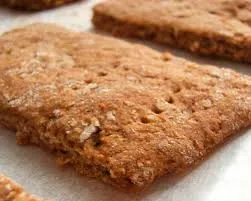-
 Afrikaans
Afrikaans -
 Albanian
Albanian -
 Amharic
Amharic -
 Arabic
Arabic -
 Armenian
Armenian -
 Azerbaijani
Azerbaijani -
 Basque
Basque -
 Belarusian
Belarusian -
 Bengali
Bengali -
 Bosnian
Bosnian -
 Bulgarian
Bulgarian -
 Catalan
Catalan -
 Cebuano
Cebuano -
 Corsican
Corsican -
 Croatian
Croatian -
 Czech
Czech -
 Danish
Danish -
 Dutch
Dutch -
 English
English -
 Esperanto
Esperanto -
 Estonian
Estonian -
 Finnish
Finnish -
 French
French -
 Frisian
Frisian -
 Galician
Galician -
 Georgian
Georgian -
 German
German -
 Greek
Greek -
 Gujarati
Gujarati -
 Haitian Creole
Haitian Creole -
 hausa
hausa -
 hawaiian
hawaiian -
 Hebrew
Hebrew -
 Hindi
Hindi -
 Miao
Miao -
 Hungarian
Hungarian -
 Icelandic
Icelandic -
 igbo
igbo -
 Indonesian
Indonesian -
 irish
irish -
 Italian
Italian -
 Japanese
Japanese -
 Javanese
Javanese -
 Kannada
Kannada -
 kazakh
kazakh -
 Khmer
Khmer -
 Rwandese
Rwandese -
 Korean
Korean -
 Kurdish
Kurdish -
 Kyrgyz
Kyrgyz -
 Lao
Lao -
 Latin
Latin -
 Latvian
Latvian -
 Lithuanian
Lithuanian -
 Luxembourgish
Luxembourgish -
 Macedonian
Macedonian -
 Malgashi
Malgashi -
 Malay
Malay -
 Malayalam
Malayalam -
 Maltese
Maltese -
 Maori
Maori -
 Marathi
Marathi -
 Mongolian
Mongolian -
 Myanmar
Myanmar -
 Nepali
Nepali -
 Norwegian
Norwegian -
 Norwegian
Norwegian -
 Occitan
Occitan -
 Pashto
Pashto -
 Persian
Persian -
 Polish
Polish -
 Portuguese
Portuguese -
 Punjabi
Punjabi -
 Romanian
Romanian -
 Russian
Russian -
 Samoan
Samoan -
 Scottish Gaelic
Scottish Gaelic -
 Serbian
Serbian -
 Sesotho
Sesotho -
 Shona
Shona -
 Sindhi
Sindhi -
 Sinhala
Sinhala -
 Slovak
Slovak -
 Slovenian
Slovenian -
 Somali
Somali -
 Spanish
Spanish -
 Sundanese
Sundanese -
 Swahili
Swahili -
 Swedish
Swedish -
 Tagalog
Tagalog -
 Tajik
Tajik -
 Tamil
Tamil -
 Tatar
Tatar -
 Telugu
Telugu -
 Thai
Thai -
 Turkish
Turkish -
 Turkmen
Turkmen -
 Ukrainian
Ukrainian -
 Urdu
Urdu -
 Uighur
Uighur -
 Uzbek
Uzbek -
 Vietnamese
Vietnamese -
 Welsh
Welsh -
 Bantu
Bantu -
 Yiddish
Yiddish -
 Yoruba
Yoruba -
 Zulu
Zulu
Aug . 18, 2024 14:12 Back to list
Different Categories of Melon Seed Producers and Their Offerings
Types of Melon Seeds Manufacturers
In today’s agricultural landscape, melon seeds are gaining significant attention not just for their nutritional value but also for their diverse uses in the food industry, snacks, and culinary purposes. As consumers become increasingly aware of the benefits of melon seeds, the demand for quality seeds has surged, leading to a growing number of melon seed manufacturers worldwide. This article explores the various types of melon seed manufacturers and their roles in this thriving market.
1. Traditional Farmers and Local Producers
One of the most prevalent types of melon seed manufacturers is traditional farmers. These producers often cultivate melon varieties that are native to specific regions. They engage in small-scale farming and focus on the organic cultivation of melons, ensuring that the seeds they produce are of high quality and free from synthetic additives. Local producers often sell directly to consumers at farmers' markets or through community-supported agriculture (CSA) programs, emphasizing the importance of supporting local economies and sustainable practices.
2. Commercial Seed Companies
On a larger scale, commercial seed companies have emerged as key players in the melon seed industry. These companies invest in research and development to create hybrid varieties of melons that can withstand pests and diseases. They also focus on enhancing the quality of seeds, improving shelf life, and increasing yield. Commercial manufacturers often have the resources to conduct extensive market research, enabling them to meet the evolving preferences of consumers. They distribute their products through large agricultural retailers and supply chains, reaching a broader audience.
types of melon seeds manufacturers

With the growing trend towards organic farming, many manufacturers have begun specializing in organic melon seeds. These companies adhere to strict guidelines set by organic certification bodies, ensuring that their seeds are produced without synthetic fertilizers and pesticides. Organic seed manufacturers often promote their products as being healthier and more environmentally friendly, catering to a niche market that prioritizes sustainable practices. This segment of the market has seen rapid growth, fueled by increasing consumer demand for organic produce.
4. Seed Exporters
In addition to local and commercial manufacturers, seed exporters play a crucial role in the melon seed market. These companies often source high-quality seeds from various regions and export them to countries with high demand. Seed exporters must adhere to international regulations concerning phytosanitary standards and seed quality. They often work closely with growers to ensure that the seeds provided are suitable for the local climates and soil conditions of the importing countries.
5. Research Institutions and Universities
Lastly, research institutions and universities also contribute to the melon seed industry by developing new varieties through breeding programs. These institutions focus on enhancing specific traits such as disease resistance, drought tolerance, and nutritional content. They often collaborate with commercial seed companies to bring these innovations to market. By focusing on research and development, these institutions ensure that the industry continues to evolve and adapt to changing agricultural challenges.
Conclusion
The melon seed manufacturing industry is diverse, with various players contributing to its growth and innovation. From traditional farmers to large-scale commercial companies, the sector is characterized by a wide range of practices and products. As consumer preferences shift towards healthier and more sustainable options, the types of melon seeds manufactured are likely to evolve, further enriching the market. Each type of manufacturer plays a vital role in ensuring that quality melon seeds are available to meet the demands of consumers and the agricultural industry alike.
-
Buy Bulk Sunflower Seeds Exporter - Premium Wholesale Supplier
NewsAug.21,2025
-
Buy Bulk Sunflower Seeds: Top Exporter & Supplier
NewsAug.19,2025
-
Delicious Macadamia Nuts: Creamy, Crunchy & Nutrient-Rich
NewsAug.18,2025
-
Gourmet Premium Packaged Biscuits | Exquisite Selection
NewsAug.17,2025
-
Sweet & Healthy Raisins: Natural Energy for Snacking & Baking
NewsAug.16,2025
-
Premium Dried Fish: Protein-Rich & Flavorful Delights
NewsAug.15,2025
